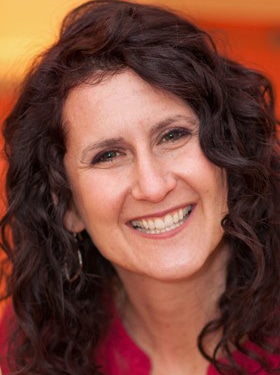by Denise Riebman
I make people cry. A lot. It’s not intentional, but there are two questions I ask during career coaching that can trigger waterworks: “What do you love to do?” and “What are you great at doing?”
Common responses to these questions are, “Well, I like to do…” or “I’m good at….” After I gently ask the questions again, emphasizing the words love and great, the tears often flow, along with comments like, “I’m not great at anything,” or “I have no idea what I love to do,” or, the hardest of all to hear, “I’ve never even thought about this.”
With nearly 70 percent of American workers disengaged at work (costing more than $350 billion annually in productivity loss) money, research, and countless books are focused on improving work culture, organizational management, and leadership. While this is valuable and needed work, I can’t stop asking the question, “What if more people knew what they loved and were great at doing, and landed in those careers?”
Imagining what that world would look like has steered me toward studying how positive psychology could be better integrated into career development to shift the way practitioners advise for career happiness. Here is a small glimpse into that world.
Setting The Tone: Mindset
When my graduate students walk into my office for a career advising session, I now ask, “What has been going well this week?” rather than “How are you?” Instead of prompting them to reel off a litany of school and work problems, this slightly different question shifts us into a positivity mindset for our session.
Carol Dweck, Barbara Fredrickson, Timothy Wilson, and Dan Gilbert are just a few of the many researchers studying how storytelling, grit, resilience, hope, and priming can lay the groundwork for opening up new possibilities now and into the future. By applying this research in their work, career advisors can build on their own strengths and existing career development theories to coach with new tools. Opening up a client’s narrow, anchored view can be as straightforward as asking, “Is this true? Is this really true? What else could be true?”
Strengths-based appreciative inquiry allows people to reflect on and explore previous times when they’ve overcome challenges, and to identify specific strengths that they can draw upon in the current situation. Career panels with those who have prevailed over obstacles on their way to success, coupled with written reflection by the attendees on the lessons learned, has been proven to help cultivate a growth mindset.
Creating Space: Flow
How do we open up possibilities to imagine a career with flow? One example is giving people permission to dream through the Anonymity Exercise, where they imagine what they would do if no one would ever know about it, freeing them from family and societal expectations. One of my private clients said he would want to be a professor of string theory (something I had only heard of thanks to the TV show The Big Bang Theory). With his mortgage obligations, he knew that going back for a doctorate was not a possibility, but this activity helped us recognize how he thrived through this way of thinking. Now he’s pivoting his experience toward a career in big data analytics, where he can use that same type of cognition—connecting the dots or, in his imaginary world, the strings.
By using career and positive psychology activities like Play History, Job Title Redefinition, Best Possible Self Four-Day Writing Exercise, Job Crafting, and Life Visioning, practitioners can guide people away from “should-ing” on themselves, and move them toward imagining a career in which they flourish.
Staying the Course: Ideas Into Action
“If I get writer’s block working on this blog post, I will take a five-minute breather. Then I can finish it in time, in order to let people know about my poster session at the World Congress on Positive Psychology.”
Writing If/Then statements, an exercise developed by Dr. Peter Gollwitzer, with clients, and using “Will I?” rather than “I will” goal setting to recognize potential challenges and identify methods to meet those challenges are two ways of integrating positive psychology into career development. By talking about the value of all the emotions—not just positive ones—in driving action, career practitioners can help clients develop concrete, measurable action plans that are realistic and action oriented.
Last week, a graduate student I’ve been coaching, using activities based on positive psychology, landed a new job. It’s a job that just a few months ago she never would have dreamed she was qualified for, at a creative, collaborative organization that she had previously thought was beyond her reach, because of her limited views of herself and her career possibilities. She was crying when she shared the news with me. This time, they were happy tears, because she knew what she loved and was great at, and was on her way to career happiness.
Click here to learn more about Positive Psychology Coaching.
Denise Riebman is a career development specialist who applies a strength-based, positive psychology framework toward inspiring individuals to find career happiness. She is Director of Career Development and Alumni Services at George Washington University’s Trachtenberg School, and founder of CareerHappinessCoach.com. Denise holds a Certificate in Positive Psychology and additional certification from Global Career Development Facilitation, Presence-Based Coaching, and The Coaches Institute.











Denise, I absolutely can’t even say thank you enough for how you’ve applied these tools in the real world and have written this blog to share it with us. You’ve just given me a couple new ideas for how to work with my next coaching client!
What a beautifully written piece with a fantastic message. Thank you for a wonderful morning read. I’ll be sharing with our clients.
Thank you Jill for those wonderful words – love hearing that this touched you, and it’s a helpful tool for your clients!